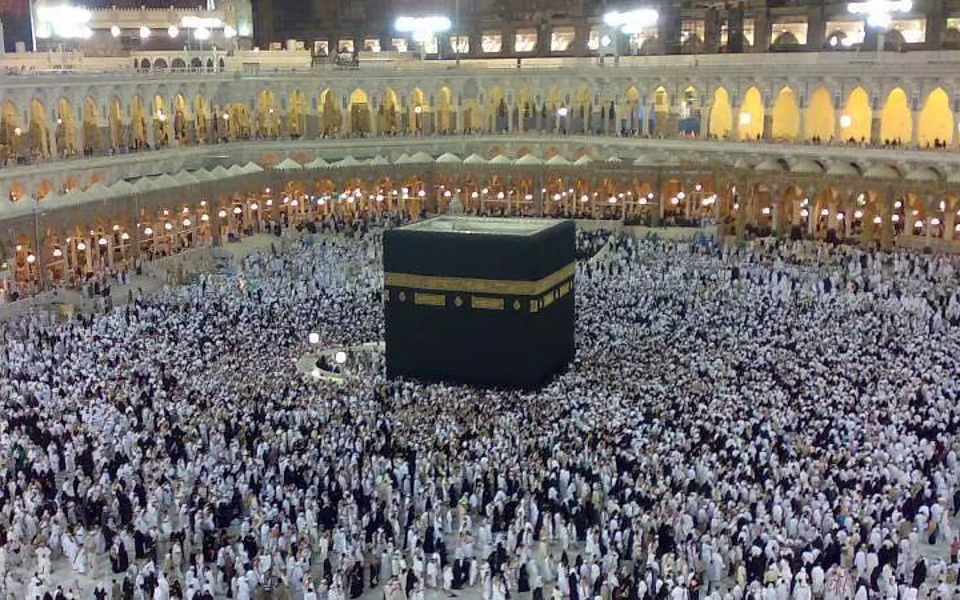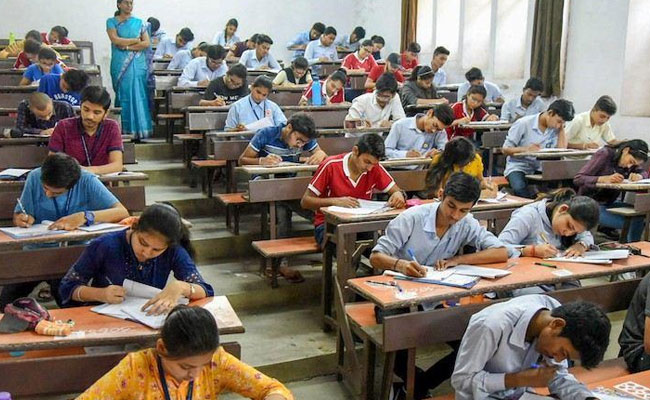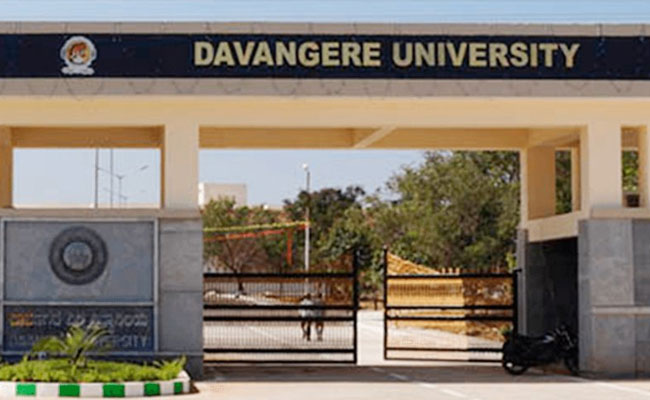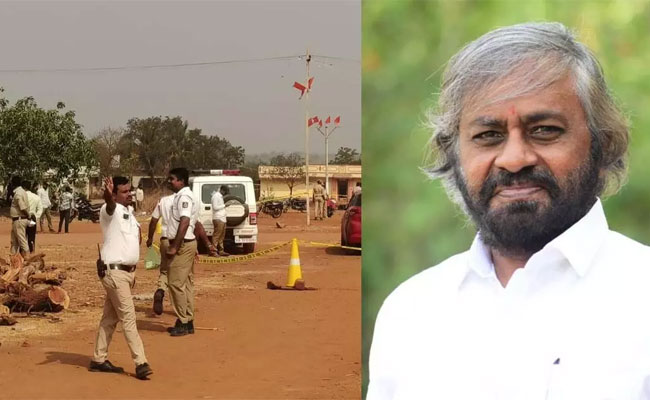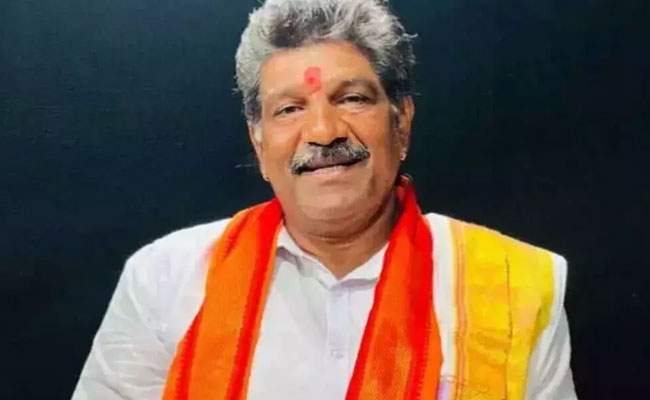Cairo, Jun 24: More than 1,300 people died during this year's Hajj pilgrimage in Saudi Arabia as the faithful faced extreme high temperatures at Islamic holy sites in the desert kingdom, Saudi authorities announced Sunday.
Saudi Health Minister Fahd bin Abdurrahman Al-Jalajel said that 83% of the 1,301 fatalities were unauthorized pilgrims who walked long distances in soaring temperatures to perform the Hajj rituals in and around the holy city of Mecca.
Speaking with the state-owned Al Ekhbariya TV, the minister said 95 pilgrims were being treated in hospitals, some of whom were airlifted for treatment in the capital, Riyadh. He said the identification process was delayed because there were no identification documents with many of the dead pilgrims.
He said the dead were buried in Mecca, without giving a breakdown.
The fatalities included more than 660 Egyptians. All but 31 of them were unauthorized pilgrims, according to two officials in Cairo. Egypt has revoked the licenses of 16 travel agencies that helped unauthorized pilgrims travel to Saudi Arabia, authorities said.
The officials, who spoke on condition of anonymity because they were not authorized to brief journalists, said most of the dead were reported at the Emergency Complex in Mecca's Al-Muaisem neighborhood. Egypt sent more than 50,000 authorized pilgrims to Saudi Arabia this year.
Saudi authorities cracked down on unauthorized pilgrims, expelling tens of thousands of people. But many, mostly Egyptians, managed to reach holy sites in and around Mecca, some on foot. Unlike authorized pilgrims, they had no hotels to return to to escape the scorching heat.
In a statement Saturday, Egypt's government said the 16 travel agencies failed to provide adequate services for pilgrims. It said these agencies illegally facilitated the travel of pilgrims to Saudi Arabia using visas that don't allow holders to travel to Mecca.
The government also said officials from the companies have been referred to the public prosecutor for investigation.
According to the state-owned Al-Ahram daily, some travel agencies and Hajj trip operators sold Saudi tourist visas to Egyptian Hajj hopefuls, violating Saudi regulations which require exclusive visas for pilgrims. Those agencies left pilgrims in limbo in Mecca and the holy sites in scorching heat, the newspaper said.
The fatalities also included 165 pilgrims from Indonesia, 98 from India and dozens more from Jordan, Tunisia, Morocco, Algeria and Malaysia, according to an Associated Press tally. Two U.S. citizens were also reported dead.
The AP could not independently confirm the causes of death, but some countries like Jordan and Tunisia blamed the soaring heat. AP journalists saw pilgrims fainting from the scorching heat, especially on the second and third days of the Hajj. Some vomited and collapsed.
Historically, deaths are not uncommon at the Hajj, which has seen at times over 2 million people travel to Saudi Arabia for a five-day pilgrimage. The pilgrimage's history has also seen deadly stampedes and epidemics.
But this year's tally was unusually high, suggesting exceptional circumstances.
In 2015 a stampede in Mina killed over 2,400 pilgrims, the deadliest incident ever to strike the pilgrimage, according to an AP count. Saudi Arabia has never acknowledged the full toll of the stampede. A separate crane collapse at Mecca's Grand Mosque earlier the same year killed 111.
The second-deadliest incident at the Hajj was a 1990 stampede that killed 1,426 people.
During this year's Hajj period, daily high temperatures ranged between 46 degrees Celsius (117 degrees Fahrenheit) and 49 degrees Celsius (120 degrees Fahrenheit) in Mecca and sacred sites in and around the city, according to the Saudi National Center for Meteorology. Some people fainted while trying to perform the symbolic stoning of the devil.
The Hajj, one of the five pillars of Islam, is one of the world's largest religious gatherings. More than 1.83 million Muslims performed the Hajj in 2024, including more than 1.6 million from 22 countries, and around 222,000 Saudi citizens and residents, according to the Saudi Hajj authorities.
Saudi Arabia has spent billions of dollars on crowd control and safety measures for those attending the annual five-day pilgrimage, but the sheer number of participants makes it difficult to ensure their safety.
Climate change could make the risk even greater. A 2019 study by experts at the Massachusetts Institute of Technology found that even if the world succeeds in mitigating the worst effects of climate change, the Hajj would be held in temperatures exceeding an “extreme danger threshold” from 2047 to 2052, and from 2079 to 2086.
Islam follows a lunar calendar, so the Hajj comes around 11 days earlier each year. By 2029, the Hajj will occur in April, and for several years after that it will fall in the winter, when temperatures are milder.
Let the Truth be known. If you read VB and like VB, please be a VB Supporter and Help us deliver the Truth to one and all.
New Delhi: The Central Board of Secondary Education (CBSE) is expected to issue admit cards for the Class 10 and Class 12 board examinations by next week, ahead of the start of the 2026 board exams. Once released, students will be able to access their admit cards through the board’s official website using their login credentials.
Previous year, CBSE issued admit cards for Classes 10 and 12 on February 3. Based on this timeframe, admit cards for the 2026 exams are expected to be available by February 10. According to NDTV, the board has already released the admit cards for private candidates on January 19 of this year.
CBSE will conduct the board examinations for the academic session 2025-26 starting February 17. Both Class 10 and Class 12 exams will commence on the same day. While the examination portal has been activated, the admit cards for regular students are yet to be issued.
Once available, the admit cards, can be downloaded from the official CBSE website. Students must log in using their roll number or other credentials given by their institution. The document will carry essential information including the student’s name, roll number, school and centre details, photograph, subjects along with their codes, examination dates, date of birth and the admit card identification number.
CBSE has advised students to verify all details mentioned on the admit card carefully and retain a copy for use throughout the examination period.

